Vacant properties are a prime target for burglaries and other types of criminal activity.
Protecting a vacant property is important, and steps should be taken to prepare a home for a vacancy, even if it’s only short term while you’re on vacation.
Keep reading to learn how to secure an empty property and prepare it for a long or short term vacancy, plus get other empty property tips.
How Do You Secure an Empty Property? 10 Home Security Tips
Empty properties must be suitably prepared and protected to prevent crime.
The most common crimes committed in empty properties are break-ins, with criminals stealing valuables or pipework.
Follow the steps below to secure a vacant property and prepare it for a safe long or short term vacancy.
1. Install security cameras
Home security cameras offer maximum protection against crime. Criminals have even admitted to walking away from a property when a security camera is spotted.
Studies found that 83% of burglars look for a security camera before breaking in. A further 60% wouldn’t target the property if they spot a security system.
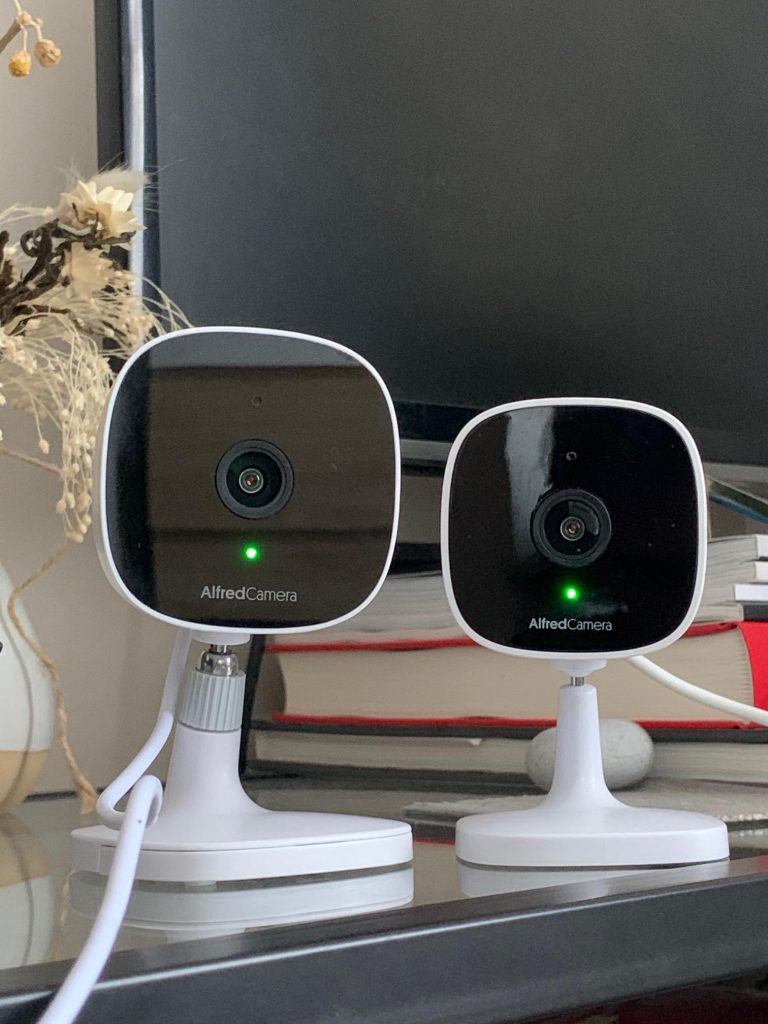
With a camera installed, homeowners and landlords are notified instantly should someone enter the property boundaries, even at night.
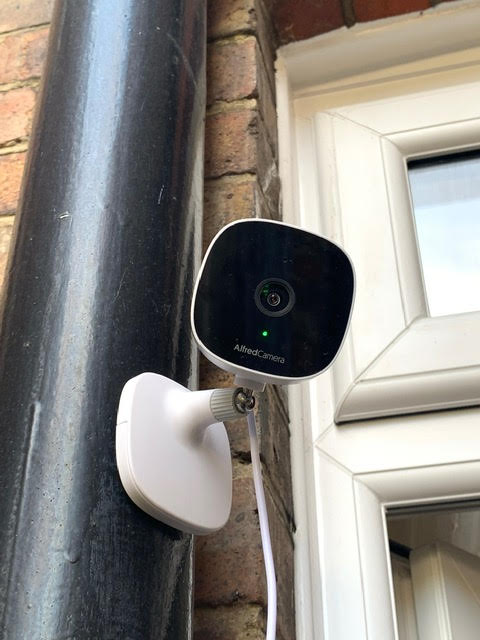
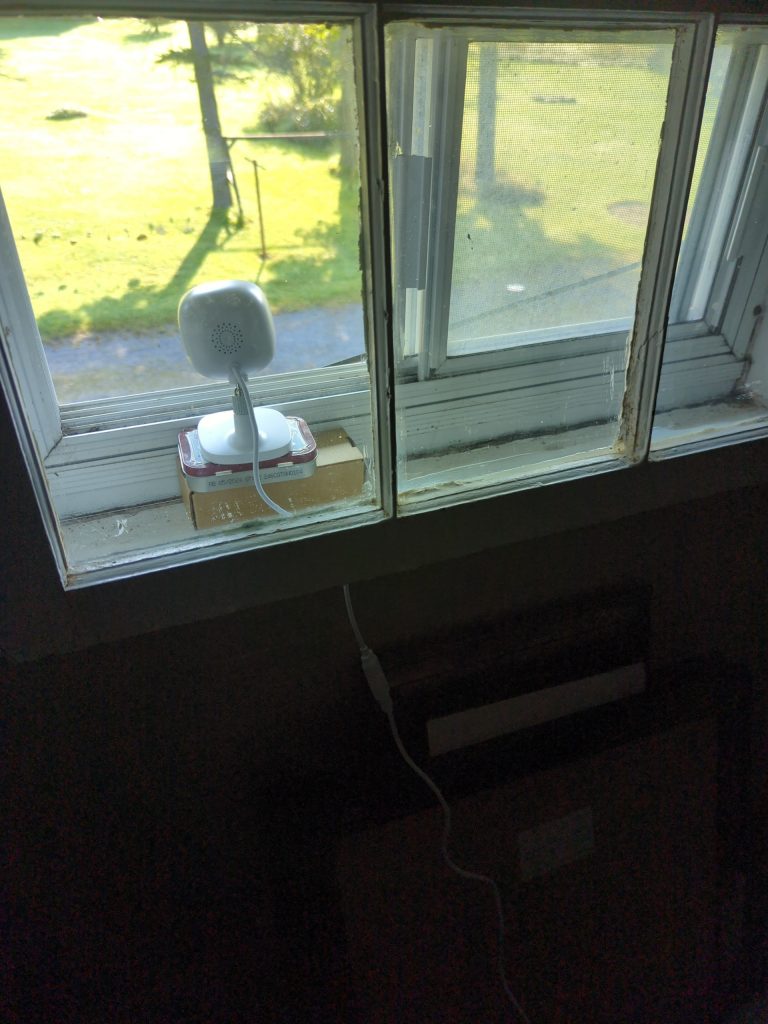
Set up fast surveillance with AlfredCamera
AlfredCamera transforms your mobile devices into security cameras for free.
Simply download AlfredCamera to your phone and a spare phone or tablet, and it’ll convert the device into a fully functioning security camera.
Once set up, users benefit from superior two way talk, robust motion detection, and even a low light mode to improve visibility.
Simply position the camera over the driveway, entrances, and accessible windows, and gain instant security for your vacant property.
Upgrade to Premium for additional features, like AI-based person detection, and experience even more advanced home monitoring.
2. Display deterrent signage
Deterrent signage, like “CCTV In Operation” or “This Building is Alarmed”, are effective home security measures alongside security cameras.
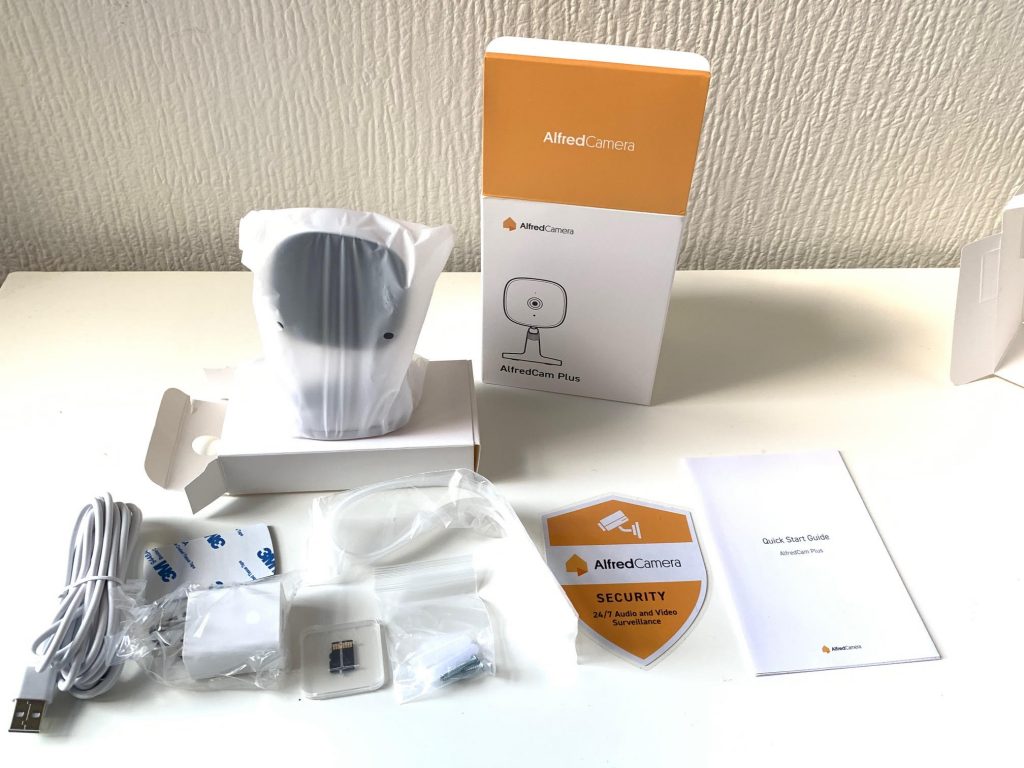
Warning signs highlight the presence of home security cameras (which scare off burglars). They also make criminals aware that a security system alarm will sound if a break-in is attempted.
Be wary of displaying signage claiming “CCTV In Operation” if it isn’t. Burglars are unlikely to believe this in a vacant property if no cameras are visible.
3. Complete visible home maintenance
Houses with overgrown shrubbery make it obvious to burglars that the home is vacant.
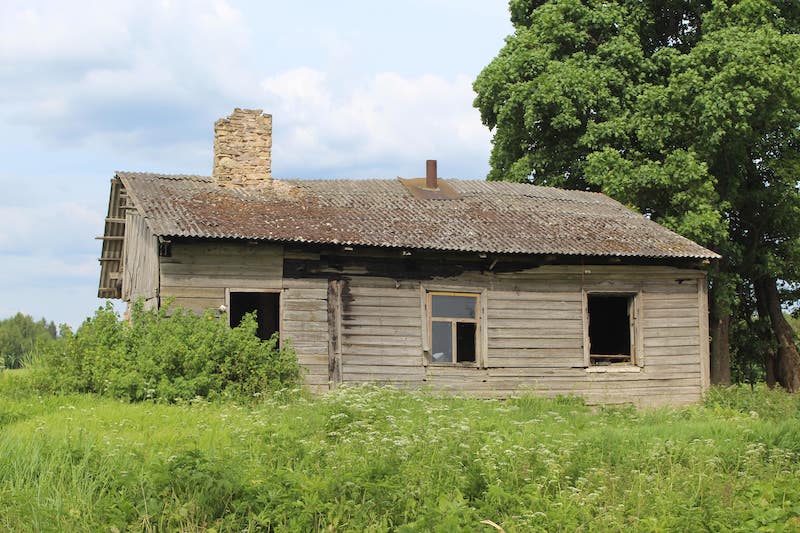
Properties in disrepair also make it look like the owners are lax about security, making it an easy target.
To prepare a house for an extended vacancy, trim shrubbery right back and cut grass. Stay on top of new growth, particularly during summer.
Likewise, repair broken gutters and windows.
4. Redirect mail
One of the most obvious signs that a property is vacant is a build-up of mail.
To prevent mail from making your home a target for burglars, redirect all mail for the period the property is empty.
To prevent flyers and leaflets from being put through the door, fit a “No Junk Mail” sticker above the mailbox.
As an extra precaution, visit the property at least once every few months to ensure there isn’t a build up of unexpected mail.
5. Install motion sensor lights
Even though properties are more likely to be broken into during the day, with most burglaries happening between 10am and 3pm, nighttime burglaries still occur.
Criminals can break into dark houses without being seen by neighbors or passersby.
Motion detection lights scare off burglars and prevent them from attempting a break-in. They also make it clear that the property is still connected to an energy provider and therefore unlikely to be unoccupied long-term, or abandoned.
Night vision with AlfredCamera
Protect your property at night with AlfredCam Plus night vision cameras.
When Night Vision is set to Automatic, Alfred detects when there isn’t enough light to see, then turns on infrared lights to create an image.
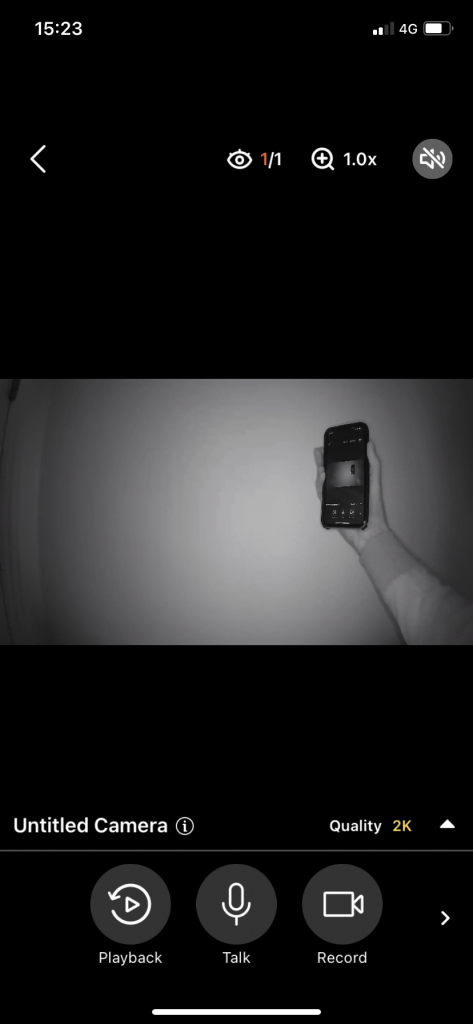
6. Draw downstairs curtains/blinds
Leaving downstairs curtains and blinds open makes it easier for criminals to see if a property is vacant. It also helps them see what valuables lie within. Keeping blinds closed prevents this.
Be wary about keeping blinds and curtains closed for long periods. This makes it more obvious to burglars that the property is empty.
If you’re going on vacation for some time, automate motorized blinds to simulate someone living in the house.
7. Get ventilation
Empty houses need regular ventilation to prevent mold and dampness.
Turn the heating or air conditioning on (depending on the season) once a week or leave it permanently on a low setting. This will keep the property ventilated or warm enough to prevent mold.
If you’re selling your property, visiting it at least once a month to open the windows and doors can keep mold at bay.
8. Notify home insurance
Standard home insurance policies only cover a property to be empty for between 30 to 60 days (1 to 2 months).
If a property is left vacant for longer than this and it’s broken into or damaged, it isn’t covered by the policy.
Take out a special vacant property insurance policy to prepare for a long vacancy if it isn’t covered.
9. Lock windows
Over 20% of US burglars get in via an open window, according to burglary statistics.
Few occupied properties are broken into via a closed window as this creates noise and could wake the residents or neighbors.
However, in vacant properties, making noise is not an issue for burglars.
Burglars can break into unlocked windows by opening or damaging the latch from the outside. Keeping windows locked prevents burglars from being able to do this.
Should the latch be lifted, the window won’t open if it’s locked. Make sure to keep window keys out of the lock for extra security.
10. Fit light timers
Dark houses are a prime target for crime, regardless of whether they are vacant or occupied.
Empty properties are the preferred choice, particularly if no home security cameras are visible on the property.
If the home has energy provided to it, consider fitting light timers on lamps.
Choose a lamp in a room visible from the front of the property, like a downstairs living room, hallway, or upstairs bedroom at the front of the house.
FAQ
Why do people break into empty houses?
Criminals break into empty houses to steal copper piping, cabling, bathroom ceramics, built-in appliances, and other fitted items. Even carpets and wood floors have been known to be removed and stolen.
Empty houses might also be used to commit fraud. Criminals register their details at the address and commit property or credit fraud.
Fraudsters do this to steal money or register the property in their name and sell it.
Will an empty house get damp?
When left vacant for long periods without adequate heating and ventilation, an empty house might get damp. Mold appears on walls, carpets, and in humid areas, like bathrooms and kitchens. This is due to a lack of ventilation in the property.
The longer a property is left vacant with no visitors, the more likely it is that mold will appear, but it also appears in just a few weeks of vacancy.
Keeping a property ventilated or ensuring the heating/air conditioning comes on at routine intervals helps prevent damp, so long as necessary structural fixes (like to the roof and walls) are carried out.
Conclusion
Just like an occupied home, vacant properties must be protected through security measures. Preparation is key, as homes left for too long without residents can become unkempt and a prime target for break-ins.
Installing home security cameras is the best solution because it allows you to monitor the property without being present.
Other ways to prepare a house for a long term vacancy are to install deterrent signage, set timers on heating/air con, and complete visible home maintenance so it doesn’t look abandoned.
